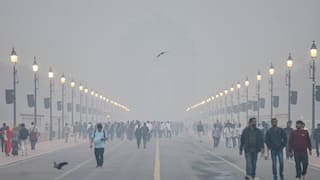Moscow Denounces G7's Price Cap On Russian Oil, Ukraine Terms The Move Not 'Strict Enough'
The $60 oil price ceiling will go into force on Monday or shortly thereafter, along with an EU embargo on marine exports of Russian crude oil.

New Delhi: Russia on Saturday criticised a $60 price ceiling on its oil that had been agreed upon by the European Union (EU), Group of Seven (G7) nations, and Australia, while Ukraine said that it was not strict enough and could need to be reviewed.
Kremlin spokesman Dmitry Peskov said, "We will not accept this price cap," to domestic news agencies, as reported by the news agency AFP, further adding that Russia was "analysing" the move.
The $60 oil price ceiling will go into force on Monday or shortly thereafter, along with an EU embargo on marine exports of Russian crude oil.
ALSO READ: G7 Coalition Agrees $60-Per-Barrel Price Cap On Russian Oil In Fresh Move To Corner Moscow
The embargo will restrict shipments of Russian crude by sea to the European Union, which make up two-thirds of the bloc's purchases of that country's oil, possibly depriving Russia of billions of euros in the potential war chest, the AFP reported.
Although Kyiv had welcomed the price cap earlier on Saturday, Ukraine's President Volodymyr Zelensky said in his evening address that the amount set was not "serious" enough to damage Russia's economy.
"Russia has already caused huge losses to all countries of the world by deliberately destabilizing the energy market," Zelensky said in his nightly address, as quoted by AFP. He further described the decision on the price cap as "a weak position".
It is "only a matter of time when stronger tools will have to be used", Zelensky further added.
The G7 nations -- Canada, France, Germany, Italy, Japan, the United Kingdom, and the United States -- along with Australia have already said they are prepared to adjust the price ceiling if necessary.
The restriction prevents nations from paying more than $60 a barrel for tanker deliveries of Russian oil and is intended to make it more difficult for Russia to bypass EU sanctions by selling beyond the European Union at market prices.
ALSO READ: Oil Price Cap On Russian Oil Will Benefit Emerging Markets, Help Constrain Putin’s Finances: US
Limit Russia's Funding
Zelensky, in his speech, gave the impression that he agreed with Poland's stance, which it had fought for until agreeing to the $60 cap on Friday. The Baltic states and Warsaw had argued in favour of a $30 ceiling.
The market price of a barrel of Russian Urals crude is now about $65 dollars, only marginally over the $60 cap established, indicating that the policy may only have a limited impact in the short term.
The G7 said it was delivering on its vow "to prevent Russia from profiting from its war of aggression against Ukraine, to support stability in global energy markets and to minimise negative economic spillovers of Russia's war of aggression," the AFP reported.
The White House described the cap as "welcome news" that would help limit Russian President Vladimir Putin's ability to fund the Kremlin's "war machine".
Russia has threatened to stop deliveries to countries adopting the measure.
As per the report, Russia has earned 67 billion euros ($71 billion) from the sale of oil to the European Union since the start of the war in February.
Phuc-Vinh Nguyen, an energy expert at the Institut Jacques-Delors in Paris said that Russia's annual military budget amounts to around 60 billion.
The EU embargo on seaborne deliveries follows a decision by Germany and Poland to stop taking Russian oil via pipeline by the end of 2022.
According to the bloc, in all, more than 90 percent of Russian deliveries to the European Union will be hit.
(With inputs from AFP)






































